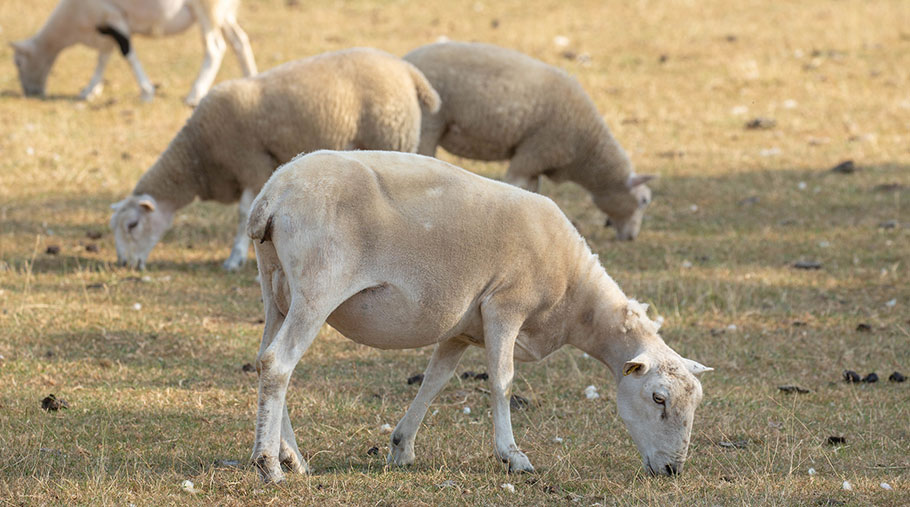Sheep health and nutrition tips in a heatwave
 © Tim Scrivener
© Tim Scrivener The weather in the UK is getting hotter, with long dry spells becoming more common, making it difficult for sheep producers to get lambs fit and off farm while keeping ewes in good condition.
The dry weather also affects grass growth leading to grazing pressure often at times when most farmers are trying to wean and finish lambs before getting ewes ready for the tupping season.
Sheep vet Fiona Lovatt of Flock Health said producers need to prioritise to manage flocks during hot dry weather.
See also: How sheep farmers can protect spring grass covers
“More than anything, (farmers) need to be body condition scoring (BCS) and dividing their flock so they’re not at the mercy of the weather,” she said.
Mrs Lovatt said farmers should group the flock into thin, fit and fat ewes to manage them accordingly.
Producers should aim to get ewes at a BCS of 3.5 by 10 days before tupping and it takes six weeks to gain one condition score point, so planning is needed to get and keep them fit.
Supplementation
Nick Canning from Strathclyde Nutrition says farmers should get lambs off ewes as soon as possible in drought conditions to reduce pressure on the grass and ewes. Supplementation can also be considered.
He said, when grass growth is poor, hay volumes will be down and many farmers will graze cattle for longer into the winter, therefore, grass availability for sheep will be further reduced.
By reducing pressure on ewes, which require 10MJ of energy a day for maintenance, Mr Canning says you can increase the amount of grass available for silaging and haymaking to contribute to winter feedstocks.
“If you take a ewe with twin lambs – if you can get the lambs off the ewe and you can supplement her, you can get four ewes in her place,” he said.
“If you can get four ewes onto the same pasture for one [ewe], you can get fields shut up for silage and hay and that’ll survive you the winter.”
Mr Canning says that, assuming grass is 18% dry matter with 10.5MJ/kg DM energy content, you can reduce the grass requirement of a ewe carrying twins from 13.07kg to 5.29kg if you wean the lambs.
This would give enough grass for 2.5 ewes in the place of one twin-carrying ewe. In addition, supplementation with an energy block can further reduce the necessary grass intake to 3.57kg, meaning the same amount of pasture for one twin-bearing ewe can feed four ewes (see “Feeding requirements”, below for more detail).
Feeding requirements |
|||
|
Energy requirement (MJ) |
Kg fresh grass* required to meet energy requirement |
Kg of fresh grass* required if supplemented with 250g of a 13ME feed block |
|
|
70kg ewe |
10 |
5.29 |
3.57 |
|
70kg ewe producing 1 litre milk/day |
16.5 |
8.73 |
7.01 |
|
70kg ewe producing 2 litres milk/day |
24.7 |
13.07 |
11.35 |
|
Assuming grass is 18% dry matter with 10.5MJ/kg DM energy content |
|||
